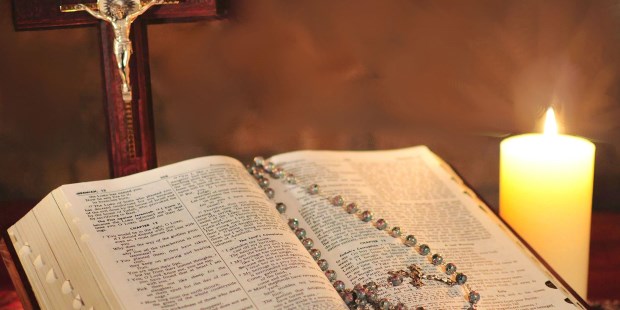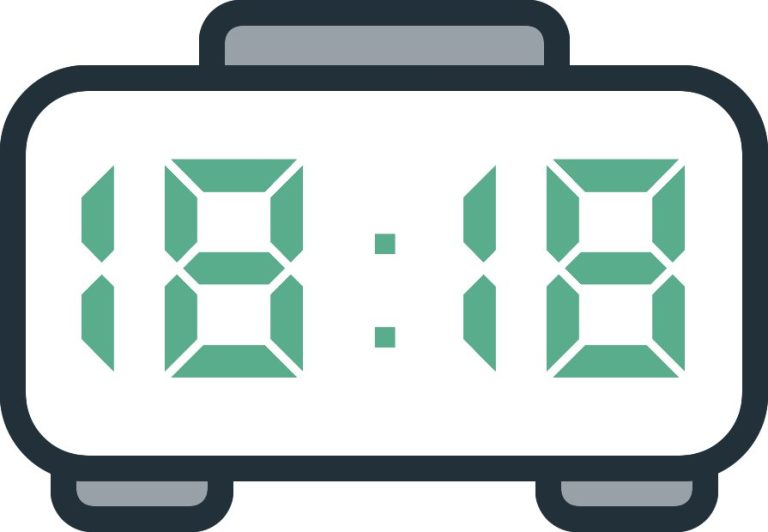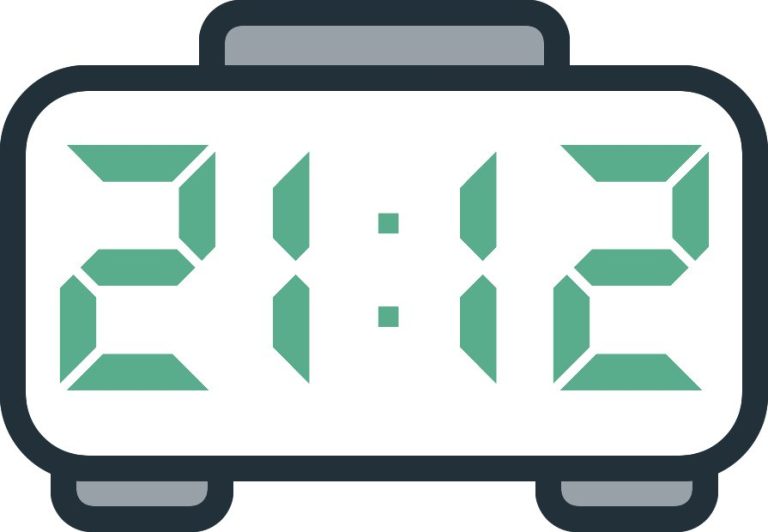Do you know how many prophetic books the Bible has? Learn all about them here
There are many doubts related to how many prophetic books the Bible has, it is divided into the so-called major prophets and minor prophets. They are described in this way, seeking to qualify between the most important and the least important messages of each prophet. It is explained that God revealed more information through the major prophets than through the minor ones.
How many prophetic books does the Bible have?
The prophetic books are 17 in all. In addition to this, these are divided into major prophets and minor prophets. The division is not due to importance, but rather by amount of text that has the content made by the prophet, which are classified as follows:
major prophets
- Isaiah.
- Jeremiah.
- The Lamentations, believed to have been written by Jeremiah. Through a poetic work, this is one of the reasons that it is placed among the Major Prophets found in the Bible.
- Ezequiel.
- Daniel, in the English and Greek Bible translation, is one of the Major Prophets. Despite this, in the Hebrew copy that is cataloged as a canon, it is part of the so-called writings.
minor prophets
- Hosea.
- Joel.
- Amos.
- Obadiah.
- Jonah.
- Micah.
- Nahum.
- Habakkub.
- Zephaniah.
- Haggai..
- Zacharias.
- Malachi.
Throughout history there have been prophets who relate to the word of God, seeking to have contact with humanity. However, these prophets are directly related to the classical period. See also: Miracle Prayer for Bible Studies )
Specifically it speaks of the last years of the kingdoms that were divided between Judah and Israel. These prophetic books were written in the time of Elijah from 874 to 853 BC. C, until that of Malaquías the 400a. c.
What are they?
They always wonder how many prophetic books the Bible has, these are part of the Old Testament of the Christian religion and the Hebrew Tanach. They are considered writings that are part of the Bible and were made by prophets. Described as men who were inspired by the hand of God, seeking to reveal in his name the message that the creator has for his people.
For Christian belief, the books that are called prophetic are those that are divided between Isaiah and Malachi, which is part of the last of the so-called Old Testament. In the Hebrew Tanakh, these scriptures are called Nevi im, which in Spanish is prophets. They are divided into several books that for Christians are historical, such as Joshua, Judges, I Samuel, I Kings and II Kings, this does not include the prophet Daniel.
These books for Christians record the most prominent messages from God to the people of Israel and Judah that are presented under speeches or sermons. They are considered visions and experiences lived by the prophets who write it, they preached between 750 and 450 BC
Among the messages that are administered, judgments and warnings are exposed, in the case of other writings, forgiveness and renewal are presented. The books that are part of the Old Prophets, Joshua, Judges, 1 and 2 Samuel, 1 and 2 Kings, are part of the cataloged Historical Books of the Old Testament.
The Minor Prophets are named in this way, since their speeches and sermons have less content than that of the Major Prophets. On the other hand, they are named in this way, according to their importance.
Hebrew prophets and pagan prophets
In the considered Near East and in the Mediterranean area, the prophetic movement is part of what describes a current religious community. The comments and stories that relate to the prophets begin to be recorded at the end of the Third millennium BC, there are denominations of great prophets from there.
They were found both in towns in Israel and neighboring towns. An example of this is Mari and Biblos. The Bible speaks of these pagan prophets who worshiped the God Baal.
Name’s origin
The original word comes from the Hebrew language which is nabí, plural Nevi ím. Its precise foundation and its meaning do not have a clear record. There are three theories that explain this information and they are the following:
Ecstatic, which comes from the Hebrew word to boil. Which means the heat that provoked the revelation that generates a prophet, that is to say, a burning man of wisdom, delivered by God.
Messenger, it is part of the Hebrew root to speak, as it is said that is why Yahweh speaks to us, through the prophets.
Called, which comes from the Akkadian root nabu, meaning to call. In this case the prophet was called by God through appointees, with the aim of spreading his word to the believing people and those to be converted.
For scholars of these issues, the third theory is the closest to reality. However, precise studies cannot be carried out to demonstrate the reality of the hypothesis.
In its Greek version of the LXX, the meaning of nabu in the ecstatic or ecstatic aspect is not given. This at once translates it as prophets. That is why they call it the one that speaks from one area to another.
Similarly, it is referred to as the one who represents a third party or the spokesperson. These for the Greeks, are those who anticipate, say things before they happen or those who manage to see the future.
That is why for the LXX the prophet is a spokesman or messenger of God, rather than a seer. On the other hand, the Hebrew Bible speaks of the nevi ím as the seer or roé, the hozé which is translated as the one who sees or the one who has sight and the cholem, which is described as the dreamer or the one who has dreams.
historical origin
Since the beginning of antiquity the word prophet is recorded in the Bible. For the Hebrews, Abraham was already considered a prophet, according to records in Genesis 20:7. However, this word was introduced there at a later date than the making of the book.
Similarly, Moses has been called a prophet. Despite this, he can be described more as a legislator or leader of the people of God, who was sent by the Lord to deliver them. In the only book that he is described as the prophet is Deuteronomy 18:15.
For the last times the judges appear in Canaan who are organizations called Sons of the Prophets, who are related and have similarities with the Canaanite prophets. These men are known to the Hebrews as Nabí.
It should be noted that nabí not only speaks of those prophets who speak under the word of Yahweh, they are also called in this way the so-called pagan prophets.
History
There were for those times a large number of prophets. From those who were truly part of God’s beliefs and are recorded in the Bible. Also the 450 Phoenician prophets who were sent to Israel 1R.18 by Queen Jezebel. Like the courtly prophets and the so-called of the time of Yehu 2R.10:19.
Both in Judah and Israel there were plethora of prophets who were busy expounding their word in any region. In addition to this, Zacharias indicates that they continued to expound their word until they disappeared at the end of the fourth century BC.
On some occasions these prophets are careerists and always try to take advantage, which is why they resembled the powerful in many cases. On the other side are the racing officials, who spread their beliefs. In addition, there are the professional prophets, for their part, the Sons of the Prophets, are those who are considered professional prophets who are involved with the true prophets of Yahweh.
The so-called Sons of the Prophets begin in the times of Judges 1Sa 10:10 and 19:20. They expanded in the times of Elijah and Elisha. They call themselves honest and fervent men and gather in Jewish temples, with the aim of giving their message to the faithful about the dangers caused by pagan customs.
It is not known if any of the prophets who wrote these books originated under this movement. It is important to mention that it is unquestionable that Samuel, Elijah and Elisha were closely related to this group.
The passage to the written word
The elements that stand out in the area of prophecy have undergone notable changes, related to the vocabulary that is used since it has had modifications over time. On the other hand, the methods that were used as prophetic of the first prophets stood out for oral communication while the newer ones wrote down their prophecies.
That is why the oral tradition stipulated by Moses became part of those elders who taught the word of God. Elijah’s teachings were passed on to Elisha. On the other hand, Isaiah communicates his word through his disciples and Jeremiah teaches Baruch to prophesy.
But the verbal transmission was not enough and that is why the prophetic messages were felt in the books that are known today. When the exile occurs, the prophetic writings are established in the Jewish people that become retrospective prophecies, where the messages of the ancient oral prophets are rescued.
These prophets who start the movement are also called by God to spread their message.
The role of the prophet in the bible
The prophets are men called by God, with the mission of communicating and spreading the word of the Lord. Prophets are believed to derive no benefit from their mission. Their honor is directly related to being God’s servants. Sometimes they were even punished for not believing in death.
Prophets are described as those who were chosen by God to be his messenger. Normally the prophets go together with followers and in some cases together with their teacher of the word of God. This process is described in Jer 1:5, the calling of Am 7:15 and in ls 6:8. This process has a mission as a response, this call is so important that the prophets are unable to dismiss.
The message that is rarely received is addressed to a single person, since the mission is to spread it as much as possible. It is a message that should be given to the community as a whole.
Its messages have effects related to current events and related to the future. It is considered a timeless and even universal message. The prophet’s job is to speak to the people around him. It is important to highlight that God inspires them and is the one who really generates the message through that conduit.
The prophets are aware of their work or mission and seek by all means to carry it out. His teachings are directly related to those delivered by the Lord. Since they are the drivers between Yahweh and his people.
It is important to highlight the prophetic experience so as not to fall for scams. Since the word God is law.
God’s message
The message sent by God can arrive in different ways. It takes place through visions as was the case with Ezekiel. Also through voices with Jer 1:11 or dreams Dan 7:1.
For believers in the Lord, visions are directly related to sensible perceptions. That is why they are based on the representations of visual images. This aspect determines the reception with which the message is handled and it is believed that it depends more on the prophet than on God. It is believed that it may be due to their qualities or temperament.
The way of receiving the message varies as the ways in which the prophet expresses himself about the delivered message, before others. He tends to have a pattern of characteristic postures and gestures that have mystical significance.
They are spread verbally or in writing, it also depends on the prophet. For the most part, those chosen as prophets were busy being preachers who gave the word in the streets, before being writers. (See article prayer for a deceased father on his anniversary)
After spreading the message through the towns, they decide to put it in writing, in the case of many prophets. In order to keep the message current. Today we do not have the sermons integrated by the prophets.
This means that the texts reflected in the books are considered a summary of the events that occurred. That is why on certain occasions the historical gaps do not allow the interpretation of some passages to be complete and easy to understand.
nature of the prophecy
Prophetic messages are made up of complex processes that are often considered difficult for modern communities to understand. It is for this reason that scholars of the subject are in charge of developing lists that contain their characteristic factors. In order to clarify doubts related to the subject.
It is divided into the following substantive elements, which is made up of five features, which are:
-
No prophet has seen the complex reality
This means that the prophets do not have the exact information of what will happen. Rather, they are presented in fragmented images that report certain aspects of God’s divine plan.
This type of characteristic in the prophets suggests that they sometimes do not really keep in mind what information they generate. In the same way they do not know the facts shown and the topic as such that they talk about when spreading the message.
The serious problem that relates the prophet to ignorance and does not collaborate with the validity of the prophet who is speaking. However, it is positive to maintain a bias in reference to the delivered message and that is why it does not cause a real problem.
Prophetic messages are full of mystery and hope, facts that provoke inexorable elements that contain faith. With reference to the factors related to the future they are linked with the people of Israel. The prophets do not have the ability to mention in what period the events will occur, it can be in years, months or centuries.
-
Prophetic language is symbolic
The message that reaches the prophets is transmitted through visual symbols or images with certain symbolic elements. That is why it is necessary to interpret each part of the sacred word.
It should be mentioned that the factors of the message have a level of difficulty that generates a problem that only a fair man is capable of understanding and circumventing the information, generating the required results.
-
The prophet knows where history is going
Despite the fact that the character does not have a clear understanding of the message that he emits. She is always aware of what is happening with reference to the story that spreads to her people.
Receive the general course that refers to the elements of the history of Judaism. This type of distinctive feature is perceived even in those prophets who developed in more primitive times.
-
The prophet often contradicts the wishes of the people
On few occasions do the prophets have a message that satisfies the elements that those who belong to the people of Israel want to hear. That is why it is considered that this type of work is complex and can even lead to dangerous reactions from those who do not receive the desired message.
An example of this is that when the people are at peace, they have to announce times of war. In moments of calm they are in charge of disseminating the cases that are related to the punishment for a specific event. Also in times of prosperity they are the ones who are in charge of informing all their people about the lapse. (Read article promises of God for Christian women)
It is important to mention that before all the messages of hunger, punishment and war there is an element that allows salvation to come in the future. In addition to restoring all the religious and moral factors that make up the people of Israel.
-
The prophet mixes with the people
This element stands out because it is normally part of the people and in turn spokesperson for God, for those members of the people who need to receive the message of the savior.
The description of the prophet keeps a distance from that of the sages. The logical reason is that he does not limit himself to preaching in the abstract. This means that it is related precisely to the intervention of factors that are experienced daily and to deal with working on real elements.
That is why the prophecies are considered to be a kind of evolutionary leap of the concepts that are mastered over wisdom.
Results
For the prophets their labors generally resulted in flattering elements. Normally when they failed they were taken with the indifference of the people and misunderstanding that ended in persecution. Sometimes the response was even to be tortured or killed, since the people they preached did not believe in them.
Despite this result, on many occasions, his predictions of time end up happening. It is at this time that the people of Israel began to believe in the doctrines of the prophets. This in turn exceeded the borders of the people of God (Do not stop reading prayer to God to get pregnant )
religious teaching
The teachings developed by the prophets have played a crucial role in the growth and development of religion in Israel and Judaism. The main elements that influenced the town are:
Thanks to this type of prophetic movements, the concept of unity and holiness of Judaism, in turn of God, began. The prophets were in charge of sending God’s message and in turn spiritualizing its holiness in the eyes of the Jews.
Through the predictions made by the prophets, the religious cults contrary to Judaism are fatuous. Since man’s responsibility is his belief and his commitment to Yahweh.
Thanks to the prophets, it begins with the establishment of morality and the concept that it is sin for believers in Yahweh.
They were able to create awareness and responsibility of believers in the mystery of why God chose Israel as the people in charge of carrying the word of God above all the peoples of the earth. With the aim of teaching him his word, using it, punishing it and saving it from all evil.
The alliance that began with the people of Israel is the best demonstration of goodness in regard to God and man.
The prophets occasionally speak of the messianic first fruit that brings with it the hope of the coming of the Christ, who is a descendant of King David. This prophecy brought with it the expectation of a kingdom that would establish justice and peace that was later established by Jesus.
Classification
The prophetic books are classified according to criteria and methods in the way in which the prophets worked in relation to the word of God and the way in which they gave the message. Among the notable elements that establish its classification are:
oral prophets
This class of prophets are the oldest. They are those who did not write their words in books. They took care of revealing the messages shouting before the people. Among the best known are Deborah and Samuel, who were also Judges, Nathan and Gad who were in the days of King David.
On the other hand, there are Ajías de Siló during the period of Solomon, Semelas in the period of Rehoboam, Micah be Yimlá in the period of Ajab and Elijah with Elisha in the 9th century BC.
written prophets
It is from the 8th century BC when the prophets begin with those who made the prophecies and wrote them down. It is in this way that it begins with Amos and Hosea in Israel and the prophet Esaias, as well as Micah and Nahum.
On the other hand, there were also among these prophets Zephaniah, Jeremiah and Habakkuk who are part of Judah. At the time of the Exile the outstanding prophets were Ezekiel, as well as Daniel and the return of Haggai, in addition to Zechariah, Malachi and Joel.
Time
According to the time, the Tanaj divides this type of elements in the following way:
first prophets
Abraham, Moses, Joshua and Samuel, these prophets belong to the books of the old testament.
last prophets
Isaiah, Jeremiah and Ezekiel.
book length
For Christianity this is divided into the major prophets and the minor prophets. They are classified as the basis of importance that reveals the teachings and importance of their prophecies.
In addition to the length of the writing, whether it is greater or less.
major prophets
Isaiah, Jeremiah, Ezekiel and Daniel.
-
Isaiah
He is also called Esaias. He is the son of Amoz, he was married and the father of two children. He was named in the year King Uzziah died in 740 BC His prophecies are made during the reign of four kings belonging to Judah, Uzziah. Jotham, Ahaz and Hezekiah. Isaiah has the meaning of God is salvation.
This prophet’s main mission was to be sent to Judah. Despite this, his message reached the north of Israel. His life unfolded in the days of the civil war between Judah and Israel from 734 to 732 BC.
Isaiah is called by some the greatest of all the Old Testament prophets. It was his disciples who continued to transmit his message through the ages. He is also part of the times of the exile of Judah and the liberation that God generated.
Jesus occasionally quotes from the book of Isaiah, a very common situation, since he was the savior who is the priority theme of the books of Isaiah. This book is the first to be presented within the Major Prophets, besides it is the longest of all of them.
-
Jeremiah
This prophet lived about 2600 years ago. He was the son of Hilkiah and was part of the inhabitants of the city of Anathoth, which was the land of Benjamin, in the territory of Judah.
Jeremiah, in the book of the Bible that is called by his name, predicted around 628 BC. C to 586 BC on the ground of Jerusalem. At that stage of the people of God, the Babylonians had taken the territory of Jerusalem as their own. At that time the Babylonians took some Jews into captivity, from about 605 BC to 597 BC as recorded.
The Babylonian empire deals with destroying Jerusalem in 586 BC Jeremiah was the prophet who warns the people that Jerusalem will be punished for their committed sins. It was he who begged the people to repent of their sins and ask God for forgiveness. However, no one heard it.
After his predictions the people attacked him with contempt and persecution. At the time the people of Jerusalem received their punishment from him, Jeremiah was given the choice of staying in Judah or Babylon if he wished.
The prophet decided to stay within Judah, however he was forced to flee to Egypt at the time. This was because a group of fanatics kills the Babylonian who becomes governor of Judah.
Jeremiah is said to die in Egypt. According to the book he is the second of the four prophets belonging to the Major Prophets.
-
Ezequiel
This prophet lived around 2600 years ago. In the times in which the Babylonian Empire had subjected the territory of Judah, thus destroying Jerusalem and the Temple.
His father was Buzi, who was considered a Zadokite priest. In addition, his call as a prophet occurred in the fifth year of exile of King Joachim. His word lasted around 22 years.
His prophecies related to the destruction of Jerusalem, which resulted in friction between the Jews and the Babylonians. At the moment in which his messages from God became a reality, the people had greater respect for him.
Ezekiel’s wife passed away at the time that Babylon began to dominate Jerusalem. This situation arose in the year 586 BC, after the captivity of some settlers, including Ezekiel, by the Babylonians.
The situation culminates in the moment in which Jerusalem and the Temple located in the territory are destroyed. This prophet was a great watchman of the people of Israel. This shepherd took care of protecting the people.
That is why he warns about the dangers that were approaching them. Ezekiel means God strengthens. This is the third of the four Major Prophets.
-
Daniel
Daniel dedicated himself to prophesying various messages that passed throughout history that were related to events of the time. In his book, prophetic events of the future are spoken of in the same way. Daniel spoke of the worldwide empires that would come to earth.
Similarly, this prophet managed to see the power of God and the Messiah, who would take care of undoing evil in the world. This book is divided into two parts. In its first chapter it talks about the prophet’s messages as well as his friends.
Already in the second part of the collection of writings. Where apocalyptic range visions are presented that are related in the course of history at general levels, this is presented from chapter seven to twelve.
Its preparation was carried out in three years in Babylonian territory. This prophet trained himself to be the best magician and astrologer, possessing much wisdom found in Babylon. In addition to this he was called advisor to the king.
The prophet Daniel remained faithful to the word of God and took care to speak with him three times a day. He did not indulge in idol beliefs without even eating or drinking from the king’s supply.
He took care to eat vegetables and drink only water. The fidelity that he had with God allowed him to understand dreams and in turn visualize the future. In addition to that, God gave him a good and long life. It is the fourth in the book of Major Prophets.
minor prophets
The minor prophets are Hosea, Joel, Amos, Obadiah, Jonah, Micah, Nahum, Habakkuk, Zephaniah, Haggai, Zechariah, and Malachi. These last three are formed as a group, they are also called Post-exilic Prophets.
These minor prophets are considered the last of the book and in the second section of the Hebrew Bible, of the Neyi ím prophets. These are part of 12 independent books. Minor is not related to their importance but to the amount of text it has.
It is important to mention that they all stand out in the Hebrew Bible, however they did not have enough writing. Among the long ones is the Obadías that each contains 14 chapters.
Hosea and Amos were made from the eighth century BC from the books of Zechariah and Malachi. In these books, elements of a variety of points are presented that relate to topics related to prophets.
canonicality
The prophetic books that are considered canonical for the Catholic Church. On the other hand the Jews and Protestants. In addition, Baruch is considered apocryphal. Daniel is not part of the Bible scriptures from 3:24-90, in chapters 13 and 14.
These types of elements are included in the Greek translations in the Septuagint that do not relate to the Hebrew originals. For the element of Baruch, in addition to Daniel it is related to the Greek additions. (See also: How many books does the new testament of the bible have )
That is why it stands in the way of Judaism and is rejected in the entire book. Those that are part of the writings in Greek are included by the Protestants. In addition to it are the rest of the apocryphal of the Catholics.

Hello! Let me enthusiastically introduce myself as a dedicated blogger fueled by an intense passion for meticulously crafting insightful and well-researched blogs. My mission revolves around providing you, dear readers, with a veritable treasure trove of invaluable information.







